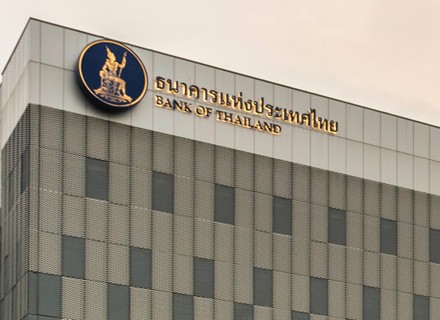The Bank of Thailand, through its assistant governor Piti Disyatat, has maintained its GDP growth forecast for next year at 4.4%, taking into account the government’s economic stimulus measures. The Monetary Policy Committee (MPC) recently decided to raise the benchmark interest rate to 2.5%, the highest level in ten years. While the MPC reduced its growth forecast for 2023 from 3.6% to 2.8%, it raised its outlook for next year from 3.8% to 4.4%.
Prime Minister Srettha Thavisin and Deputy Finance Minister Julapun Amornvivat are optimistic about the government’s planned digital wallet policy and the expansion of domestic trade and investment schemes, predicting a 5% economic expansion next year. According to Mr. Piti, the government’s stimulus measures in the coming year will have a fiscal multiplier of 0.3-0.6%, meaning that for every 100 baht spent, the GDP will increase by 30-60 baht. He also stated that the gradual policy rate hikes by the MPC have been appropriate and that the current policy rate is near a neutral level. The central bank’s policy focuses on managing inflation and supporting a smooth economic recovery.
Mr. Piti mentioned that the GDP in the second and third quarters showed recovery based on domestic demand for private consumption. Non-farm and farm incomes have also rebounded and exceeded pre-Covid levels. Additionally, foreign arrivals have significantly increased since the policy rate normalization in August 2022, while the unemployment rate has declined from its peak during the pandemic to 2.6% presently. Mr. Piti expressed satisfaction with the economy’s rebound following the gradual rate hikes implemented by the central bank.
Regarding sustainable growth, Mr. Piti emphasized that inflation is a key factor. While Thailand experienced uncomfortably high inflation last year due to food and oil price increases, he believes that the recent surge will be short-lived. In contrast to advanced economies like the US and UK, which continue to face high inflation, Thailand’s inflation swing occurred over a relatively short period. Looking ahead, Mr. Piti noted that recent increases in commodity prices and growth recovery may create inflationary pressures.
Commenting on interest rates, Mr. Piti stated that Thailand currently has the lowest rates in the world, and the central bank’s rate hikes have been gradual. He highlighted that Thai interest rates have increased by two percentage points compared to a four-percentage-point rise seen in developed countries. He also mentioned that private sector funding costs have risen in line with the policy rate, and the slowdown in private credit growth reflects a normalization after the pandemic-induced credit expansion.
Sakkapop Panyanukul, a senior director at the central bank, expects strong economic growth next year, driven by increased private consumption resulting from government stimulus measures and investments in major state projects. Domestic demand has already shown improvement, with second-quarter growth at 3.8% compared to 2.9% in the first quarter. The central bank believes that domestic demand can strengthen further next year, even without the government’s stimulus measures. Tourism, although slightly affected by a decline in the Chinese market, is expected to recover and reach 35 million foreign arrivals next year. Export value is projected to contract by 1.7% this year but is anticipated to expand by 4.2% in 2024.
Phurichai Rungcharoenkitkul, director of the monetary policy strategy office at the central bank, emphasized the need to control credit expansion, which was high during the pandemic. The increased interest rates have affected funding costs and led to a rise in the country’s debt burden. Thailand’s mortgage and corporate loan debt burden stands at 170-180% of GDP, higher than that of emerging economies. Mr. Phurichai stated that if the government decides to use monetary policy to stimulate the economy in the future, it would likely be due to a crisis situation.
READ MORE: https://bangkokone.news
SOURCE: bangkokpost.com




